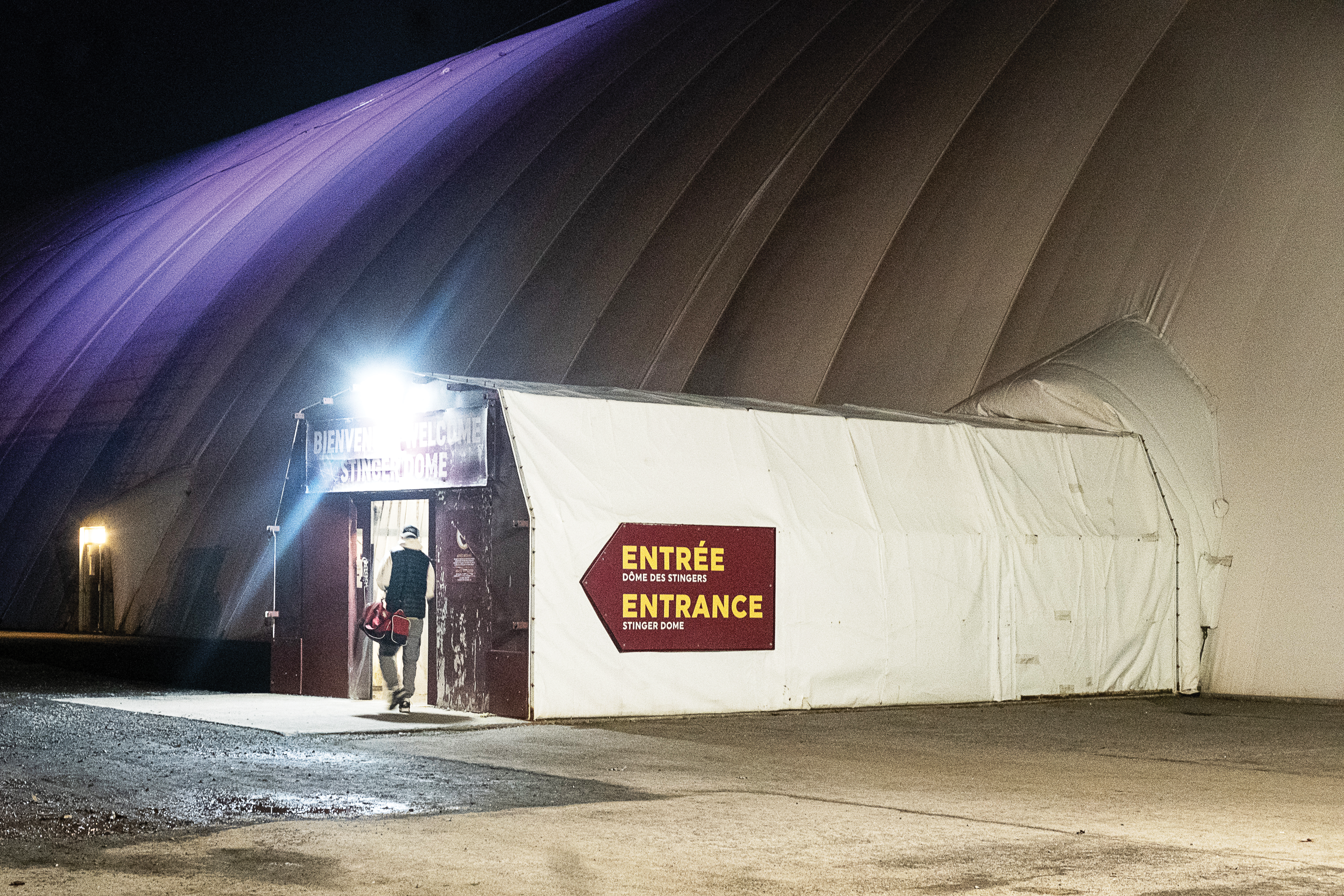The student’s journey to defend his name is just beginning.
John, the Black student who was accosted in the Stingers Dome and charged with assault on Dec. 13, appeared in municipal court for the first hearing on March 12.
John was accompanied by Fo Niemi, the executive director of the Center for Research-Action on Race Relations (CRARR) and a family member. The concerned staff person was also present wearing his Stingers jacket, sitting in the last row of the room.
John was playing soccer in the Stingers Dome when a staff person questioned him several times as to why he was there. A teacher at the Loyola high school came to John’s defense, telling the staff person that John was allowed to play. Two days later, the same staff person yelled racist comments at John, filmed him, and punched him in the face. John left the scene with a cut on the left side of his face and was handcuffed by police.
John was charged with assault, but pleaded not guilty. One of the defense attorneys urged the judge to proceed expeditiously given the sensitive nature of the case. It appears that Concordia is asking for certain conditions, the extent of which are unknown at this time.
Niemi told The Concordian in an email that the staff person filed a formal complaint to the Office of Rights and Responsibilities (ORR) against John on Feb.7. The complaint was then forwarded to John on Feb.29. The specific details about the complaint were not disclosed for confidentiality purposes.
However, in a statement sent to The Concordian, Concordia spokesperson Vannina Maestreacci underlined that “all members of the university (students, staff, faculty) have the right to file a complaint under the Code of Rights and Responsilities against another member.”
“In the case of a formal complaint against a student, the process is through a hearing panel, which determines if a violation of the Code occurred,” Maestreacci said.
In regards to the ORR, Niemi will investigate “their concrete measures to address systemic anti-Black racism, particularly racial profiling, as many elements of the incident of December 2023 have elements of racial profiling.”
Maetreacci sent another statement to The Concordian, stating that the ORR’s policies on filing complaints remain the same “whether anyone involved in a complaint is a person of colour.”
“When concerns of anti-Black racism are reported in the context of its processes however, the Office of Rights and Responsibilities applies an inter-unit collaborative approach, consulting with the Black Perspectives Office. ORR frequently reviews the recommendations of the President’s Task Force on Anti-Black Racism and implements them where appropriate,” Maestreacci said.
John’s lawyer was absent at the first hearing, letting this unfair case dangle over his head and forcing the hearing to be rescheduled. In the meantime, Niemi will continue to investigate the potentially racist nature behind John’s arrest and pressure Concordia to take concrete measures to address anti-Black racism on campus.
“One of the systemic issues we will address in the complaint [Quebec Human Rights and Youth Rights Commission] is the university’s actions (or lack thereof) in relation to campus security as outlined in page 64 of the action plan to combat anti-Black racism. The January 2024 Progress Report has identified only one action in this regard,” Niemi said.
The next hearing is scheduled on April 12.
Corrections:
- In a previous version of the article, it was written in the first paragraph that John appeared in municipal court for the first hearing on March 13. This is not correct. The first hearing was on March 12. It was also written that John was charged with assault on Dec. 23. This isn’t correct, he was charged on Dec. 13. The Concordian takes full responsibility for these errors. We apologize to our readers for these mistakes.
- In a previous version of the article, it was written in the fifth paragraph that the formal complaint against John by the staff person was filed on Feb. 14. This is not correct. The complaint was filed on Feb. 7 and was later forwarded to John on Feb. 29. The Concordian acknowledges and takes full responsibilities for these errors and we apologize to our readers.
